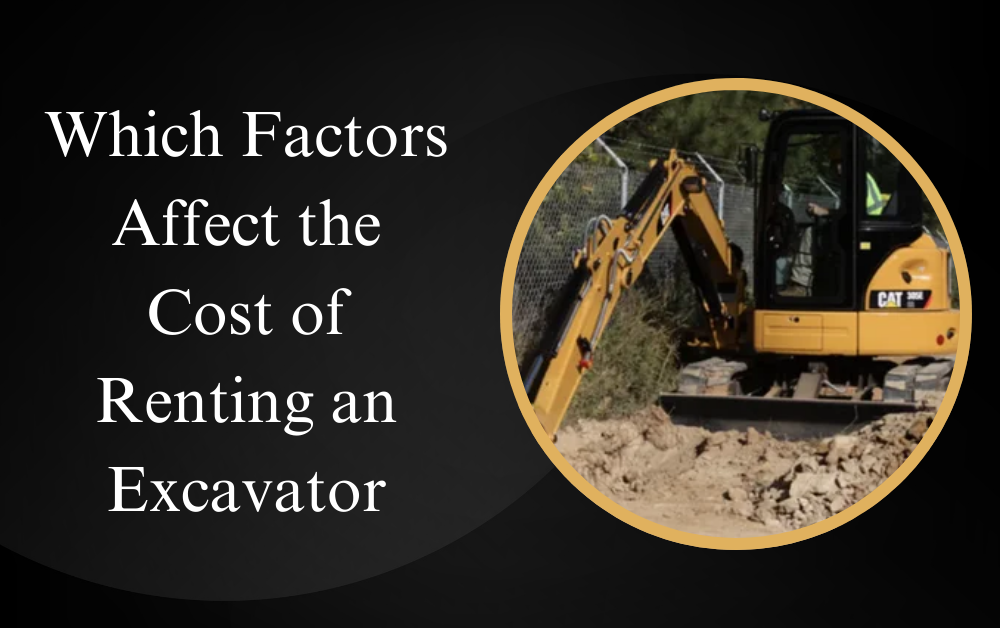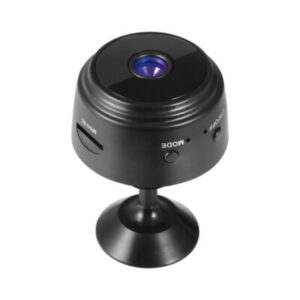Which Factors Affect the Cost of Renting an Excavator
Renting an excavator can be a cost-effective solution for various construction, landscaping, or demolition projects. However, the cost of renting...

Renting an excavator can be a cost-effective solution for various construction, landscaping, or demolition projects. However, the cost of renting an excavator can vary depending on several factors. Whether you are planning a short-term or long-term project, understanding the factors that affect rental prices can help you make better decisions. This blog will break down the main factors that influence the cost of renting an excavator, making it easier to plan your project and manage your budget.
Note : Looking for reliable Excavators for Rent in Dubai? Get the right machine for your project at the best price! Contact us today to find the perfect excavator for your needs and keep your project on track. Don’t wait—call now to get started
What is an Excavator?

A Basic Understanding of Excavators
Before diving into the cost-related factors, it is important to know what an excavator is. Excavators are heavy construction machines equipped with a large bucket, arm, rotating cab, and movable tracks. They are used for tasks like digging, demolition, material handling, and trenching. Different types of excavators can be used for various jobs, which also affects the rental cost.
Types of Excavators That Affect the Rental Cost
Compact Excavators
Compact or mini excavators are smaller machines designed for light work, such as digging small trenches or working in tight spaces. Due to their smaller size, they are usually cheaper to rent than larger excavators. If your project involves minimal digging or if you have limited space, renting a compact excavator can save you money.
Standard Excavators
Standard excavators are medium-sized machines that are versatile and commonly used in construction projects. They are more expensive to rent than compact excavators but are necessary for larger tasks. These machines can handle more demanding jobs like excavation, demolition, and moving heavy materials.
Large Excavators
For heavy-duty projects, large excavators are often needed. They have more power and can handle large-scale construction work, such as digging massive trenches, moving large amounts of earth, or working in quarries. Large excavators cost more to rent due to their size, power, and capacity.
Specialty Excavators
Some projects require specialized excavators, such as long-reach excavators, amphibious excavators, or demolition-specific models. These machines are designed for specific tasks and may cost more to rent than standard models because of their unique features.
How Rental Duration Affects the Cost
Short-Term Rental vs. Long-Term Rental
One of the major factors that influence the cost of renting an excavator is how long you need the machine. Rental companies usually offer daily, weekly, and monthly rates. Generally, the longer you rent the excavator, the lower the daily rate becomes.
- Short-Term Rental (Daily or Weekly Rates): If you need the excavator for a short period, you can expect to pay more per day compared to a long-term rental. This option is ideal for small or urgent projects.
- Long-Term Rental (Monthly Rates): Renting an excavator for a longer period (like a month) usually results in lower daily costs. This is a better option if your project will take several weeks or months to complete.
Project Scope and How It Affects Rental Duration
The scope of your project plays a big role in how long you will need the excavator. For example, digging a simple trench might only take a day or two, whereas a large excavation project for a building foundation could take weeks. Plan your project carefully to determine the best rental period and minimize costs.
The Size and Capacity of the Excavator
Smaller Machines for Smaller Projects
As mentioned earlier, the size of the excavator affects the rental cost. Smaller excavators, like mini or compact models, are less expensive to rent because they have lower fuel consumption and are easier to transport. If your project only requires light work, renting a smaller excavator can save you money.
Larger Machines for Bigger Jobs
Larger excavators, capable of handling bigger jobs, come with higher rental fees. They also require more fuel and often need special transportation arrangements, which can add to the overall cost. If your project involves heavy lifting, moving large amounts of dirt, or working in tough conditions, you will need a larger machine that costs more to rent.
Location and How It Affects Rental Prices
Urban Areas vs. Rural Areas
Where you rent your excavator can also impact the cost. If you are renting in a large urban area, prices may be higher due to increased demand and operating costs. Rental companies in cities may have higher overhead expenses, which they pass on to customers.
In rural areas, rental rates may be lower due to less demand and lower overhead. However, availability may also be more limited, which could affect your options for choosing the right machine.
Transportation Costs
The location of your project also influences the transportation cost of the excavator. If the rental company has to transport the machine a long distance, you will likely be charged extra for delivery and pickup. It’s important to factor in transportation fees when calculating the total cost of renting an excavator.
Additional Features and Attachments
Attachments Increase the Versatility
Excavators can be equipped with various attachments to handle different types of tasks. For example, you can add a hydraulic breaker for demolition work, an auger for drilling, or a grapple for material handling. While these attachments can make the machine more versatile and efficient, they also come at an additional cost. Be sure to discuss your project requirements with the rental company to find out which attachments you might need and how much they will cost.
Special Features Like GPS and Automation
Some newer excavator models come with advanced technology, such as GPS systems or automated controls. These features can improve the accuracy and efficiency of the machine, but they also increase the rental price. Depending on the complexity of your project, you may or may not need these advanced features.
Operator Costs and Skills
Renting With or Without an Operator
If you or someone on your team knows how to operate an excavator, you can save money by renting the machine without an operator. However, if you do not have the necessary skills, it is best to rent the excavator with an operator. Renting with an operator will increase the overall cost but ensures that the machine is operated safely and efficiently.
Operator Experience Level
The experience level of the operator can also impact the cost. Skilled and certified operators may charge higher fees, but they can work faster and more efficiently, potentially saving you money in the long run by completing the project sooner.
Maintenance and Fuel Costs
Who Covers the Maintenance?
When you rent an excavator, the rental company typically handles routine maintenance like oil changes and inspections. However, you may be responsible for repairs if the machine is damaged while in your possession. Some rental companies offer insurance or damage waiver options, which can protect you from unexpected repair costs, but this will add to the rental price.
Fuel Costs
Excavators require fuel to operate, and fuel costs can add up quickly, especially for larger machines. Some rental agreements include fuel costs, while others require you to refuel the machine before returning it. Make sure you understand whether fuel is included in the rental fee and budget accordingly.
Rental Company Policies and Their Impact on Cost
Different Pricing Models
Rental companies may have different pricing models, including all-inclusive rates or pay-as-you-go pricing. All-inclusive rates often cover delivery, pickup, fuel, and maintenance, while pay-as-you-go models may charge separately for these services. Understanding the pricing structure can help you avoid unexpected costs.
Penalty Fees
It’s important to carefully review the rental contract for any potential penalties or fees. For example, returning the excavator late may result in extra charges. Similarly, not refueling the machine before returning it could lead to a fuel surcharge. Be aware of these policies to avoid additional costs.
Conclusion: How to Get the Best Deal on Excavator Rental
Renting an excavator involves several cost factors, from the type and size of the machine to the rental duration, location, and additional features. By carefully considering your project’s needs and planning ahead, you can choose the right excavator and rental plan that fits your budget
For more insightful articles related to this topic, feel free to visit thenewsus.com





